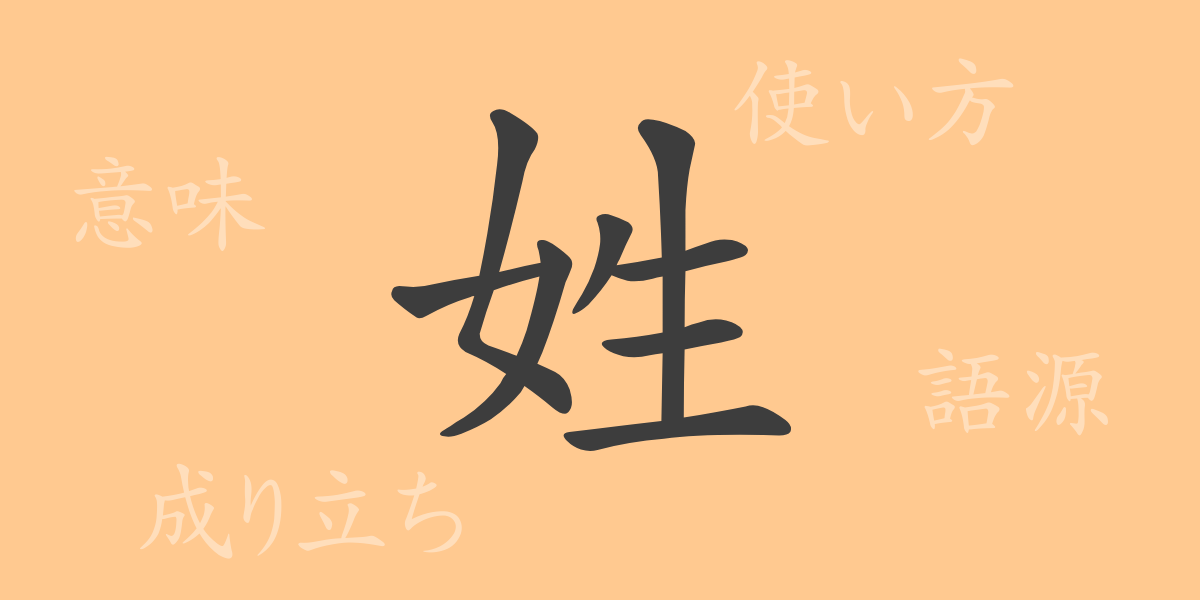In Japanese culture, surnames are more than mere identifiers. They symbolize an individual’s identity and familial history, and sometimes even hint at one’s origins and social status. This article focuses on the commonly used kanji ‘姓’ (せい), exploring its origins, meanings, and uses, as well as related idioms and phrases, to unveil the richness and complexity of Japanese language.
Origins of 姓
The origin of the kanji ‘姓’ dates back to ancient China, during the Zhou dynasty, and was introduced to Japan in the Nara period under Chinese influence. Initially used to denote common ancestors of clans or tribes, it played a crucial role in the aristocratic society to represent familial lineage and status. Over time, it spread to commoners and was officially designated to all Japanese citizens with the establishment of the family registry law during the Meiji period.
Meaning and Usage of 姓
‘姓’ specifically refers to a person’s family name or clan. Typically placed before a personal name, it serves to indicate one’s social roots. In Japan, it is also commonly referred to as ‘名字’ (myouji), and is crucial for identifying individuals. It is frequently used in business, official documents, and daily conversation, playing an indispensable role in shaping interpersonal relationships.
Readings, Stroke Count, and Radical of 姓
An explanation of the kanji ‘姓’ is as follows:
- Readings: On’yomi as ‘セイ’ (Sei), Kun’yomi as ‘かばね’ (kabane).
- Stroke Count: 姓 consists of a total of 8 strokes.
- Radical: The radical is ‘女’ (onna-hen), which pertains to women, highlighting its historical context of familial and social structuring.
Idioms and Phrases Involving 姓
There are numerous idioms and phrases that include ‘姓’, each carrying unique meanings:
- 姓名 (せいめい): Refers to one’s full name, combining surname and given name, used for personal identification.
- 同姓同名 (どうせいどうめい): Describes persons with exactly the same surname and given name, often used when they are not the same individual.
- 改姓 (かいせい): The act of changing one’s surname, typically due to marriage or adoption.
Conclusion on 姓
Surnames in Japan are intricately tied to an individual’s identity. Tracing their evolution from ancient times to the present helps deepen understanding of Japanese social structures and cultural contexts. Surnames not only connect individuals to their families and ancestors but also define their place in society. This article hopes to have conveyed the significance and allure of ‘姓’ within the tapestry of Japanese life.

























